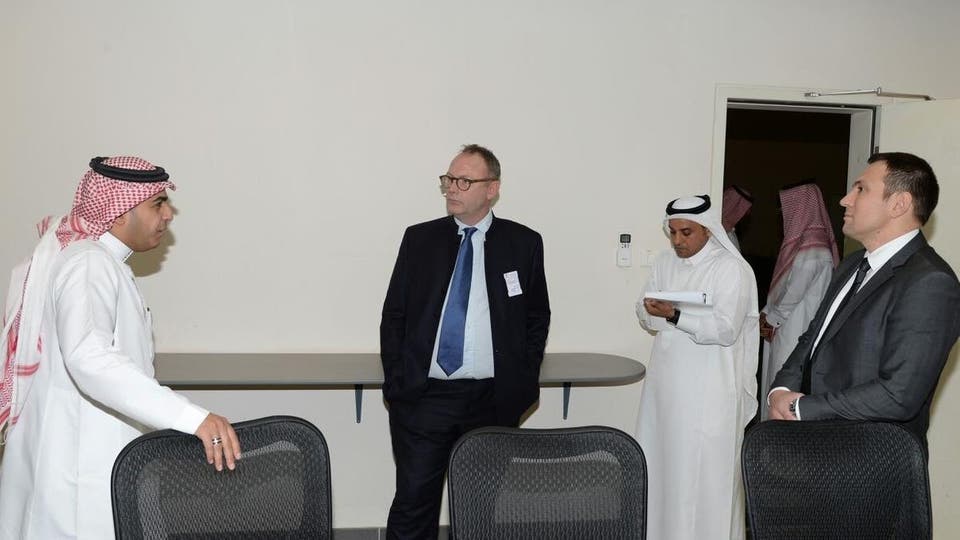
Regarding several individuals beheaded on 23 April 2019, the Kingdom of Saudi Arabia blatantly disregarded requests and recommendations previously submitted by Ben Emmerson, the former Special Rapporteur on the promotion and protection of human rights and fundamental freedoms while countering terrorism. Ben Emmerson had frankly and straightforwardly requested that the Saudi government “re-examine all cases in which individuals [charged with terrorism] are currently serving sentences of imprisonment based on acts which constitute the exercise of free speech, freedom of thought, conscience, or opinion, or the right to freedom of peaceful assembly and association.” He also stressed that Saudi Arabia must have a mechanism “to commute or pardon all such prisoners with immediate effect.” In his report, Emmerson mentioned the prosecution of 24 prisoners, among them minors and demonstrators, 14 of whom were among those executed in April.
April’s mass slaughter of 37 detainees demonstrated that Saudi Arabia has no intention of reforming or improving the state of human rights in the country through its relationship with various UN human rights mechanisms. Internal practices, such as escalating violations and crimes of torture, on the one hand, and unrealistic rhetoric involving copious lies and hypocrisy presented in the corridors of the Human Rights Council, on the other hand, confirm that Saudi Arabia is bent on using UN platforms and mechanisms to distract from its awful human rights record, which is worsening unabatedly.
Saudi Arabia’s handling of the recommendations and requests of Special Rapporteur Ben Emmerson, in particular, establishes the extent of the disregard that weakens his efforts and those of the UN to halt the unprecedented collapse of human rights in the country since King Salman and his son took power. In February 2019, Emmerson published the recommendations and results of his visit to Saudi Arabia, but after nearly two months, instead of benefitting from the report, the government carried out a horrific massacre, the worst since a previous atrocity in early 2016.
Emmerson stressed that the death penalty may only be imposed for the most serious crimes leading to loss of life and may not be imposed on people who were minors at the time of their crimes or who have psychological or mental disabilities. Nevertheless, despite international recommendations, this did not stop Saudi Arabia from including six minors among the victims, as well as other individuals charged with exercising legal rights such as demonstrating. Only a few of those executed were charged with murder, without the minimum standards of a fair trial. In previous reports, the ESOHR has documented the method of torture widely used in the country.
The rapporteur also noted that Saudi Arabia, in essence, uses a very broad definition of terroristic crimes, describing those who challenge state authority or policies as “terrorists,” and therefore the definition is incompatible with international human rights standards.
Emmerson confirmed that death sentences were issued against several members of the Shia minority who face imminent execution for their participation in demonstrations in Eastern Province. He explained that 24 people were referred for prosecution in June 2016 because of the 2011 pro-democracy protests: “The Special Criminal Court sentenced 14 of them to death, and the trial reportedly failed to meet due process and fair trial standards. The defendants were tortured and were unable to retain lawyers. This issue is a source of grave concern.”
As a result of the profound flaws and irregularities in the trials, Emmerson also recommended the establishment of an independent mechanism to review all crimes allegedly committed by speech or writing. This mechanism should have the power to immediately commute sentences or pardon, and must include representatives of civil society and independent legal academics.
The Special Rapporteur expressed his concern about “the growth of systematic oppression in Eastern Province, where most of the Shiite population lives.” He stressed that the need to combat terrorism “cannot be misused as a legal excuse to suppress public advocacy campaigns by peaceful critics, human rights activists, and members of minorities. The opposite usually happens in Saudi Arabia.”
The ESOHR believes that the total neglect of the demands and recommendations of the Special Rapporteur, whose visit Saudi Arabia voluntarily accepted, shows glaring contempt for the serious efforts of the UN to reform the human rights situation in Saudi Arabia.
The ESOHR considers the executions to be confirmation that the Saudi government’s dealings with UN mechanisms involve a great deal of pretense and disregard and reveal the falsity of its claims of cooperation with UN human rights mechanisms.
The disregard for the report of the Special Rapporteur on the protection of human rights while countering terrorism and the execution of these horrific death sentences raise an urgent question about the continuing futility of UN mechanisms for dealing with Saudi Arabia and of Saudi Arabia’s approval of visits by special rapporteurs.
The failure to act against Saudi Arabia’s fourth term of membership in the Human Rights Council by freezing it, as demanded by 170 human rights organizations, largely empties this position of its role in reforming the world’s human rights situation. Indeed, Saudi Arabia has somewhat misused its position.
At least 20 detainees are currently on death row, and the official trend is towards repeating these executions. According to the ESOHR’s monitoring of arrests, there are other candidates in line to join those already on death row.
